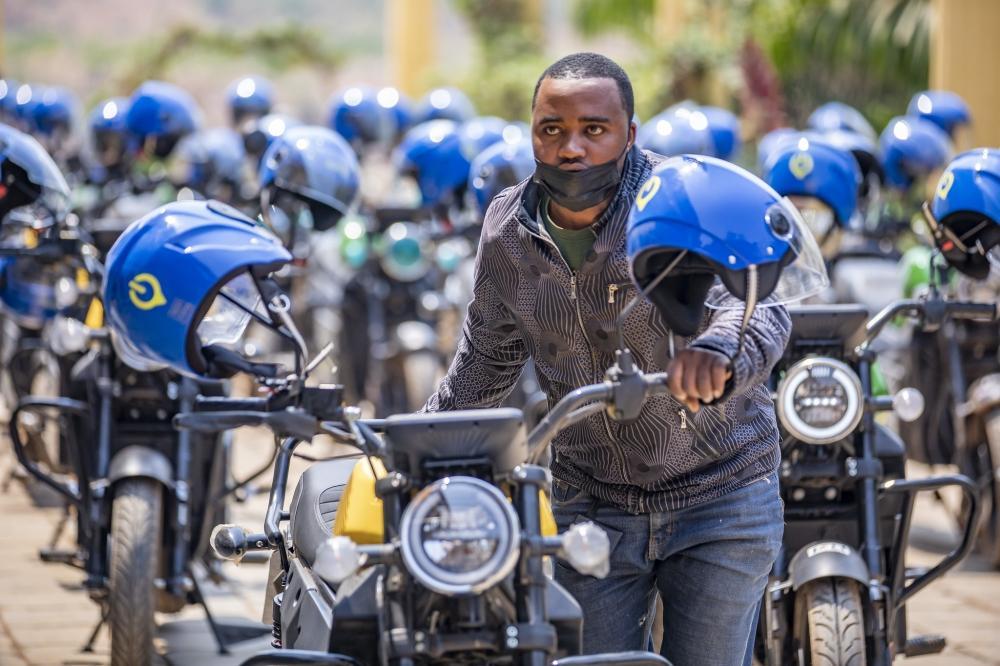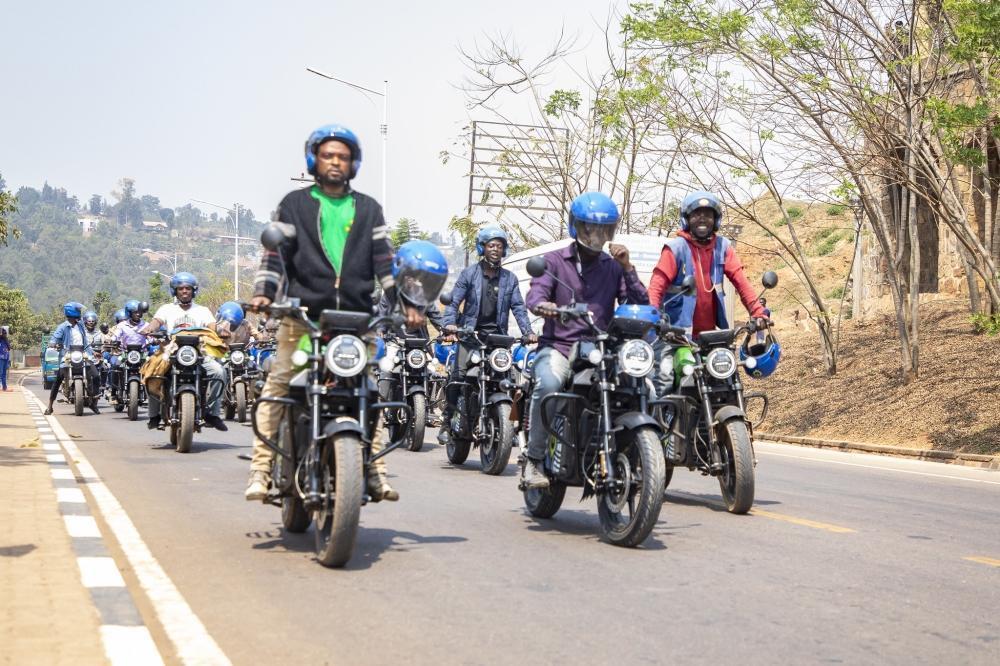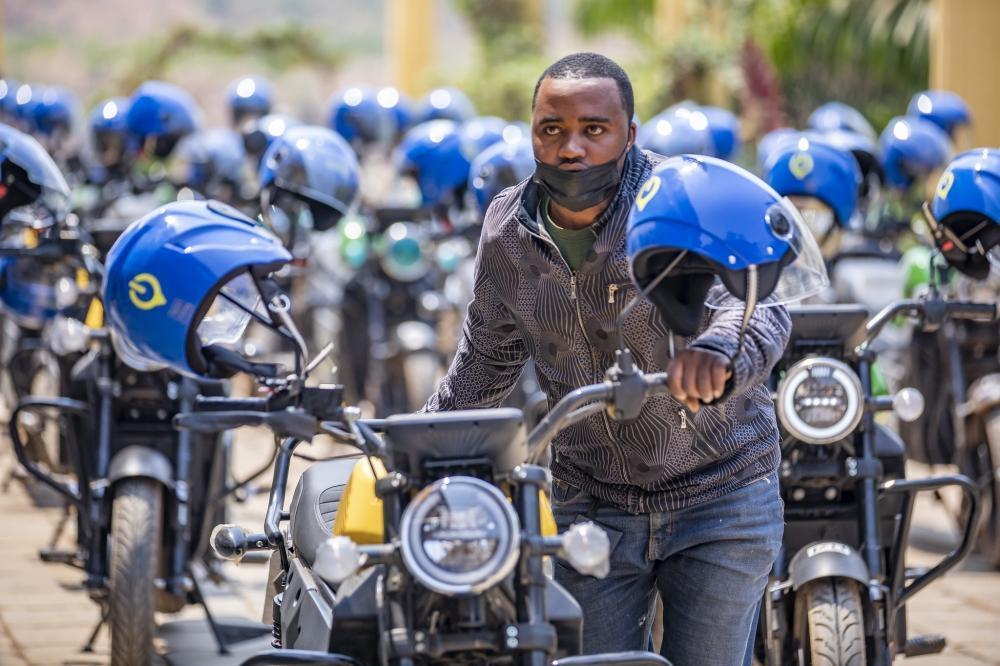Africa-Press – Rwanda. Government institutions, including the Ministry of Trade and Industry (MINICOM), have said they are closely monitoring concerns raised by riders of Spiro electric motorcycles, following recent reports of battery faults and maintenance challenges.
In a joint follow-up statement released on Tuesday, November 11, MINICOM said it was working with the Rwanda Inspectorate, Competition and Consumer Protection Authority (RICA), the Rwanda Standards Board (RSB), the Rwanda Utilities Regulatory Authority (RURA), and the Ministry of Infrastructure to ensure that all complaints are addressed.
“The Ministry is aware of the concerns raised by Spiro’s electric motorcycle riders and is working closely with relevant agencies to ensure proper follow-up,” the statement read in part.
RICA also reaffirmed its commitment to protecting consumers. “We remain committed to safeguarding consumer rights and ensuring that service standards are upheld,” the agency said, citing its mandate to promote fair trade and evidence-based regulation.
Spiro, the e-mobility company, acknowledged the technical issues with its motorcycles in a public statement.
Spiro responds
On November 8, Spiro, the e-mobility company at the centre of the complaints, acknowledged the concerns in a public statement, thanking the media for “fostering transparency and accountability.”
The company said it operates more than 650 battery-swap stations across Rwanda with half of them in Kigali which allows riders to exchange batteries within minutes.
It admitted that while technical faults sometimes occur, faulty batteries are promptly replaced and ongoing upgrades have improved performance.
Spiro added that earlier delays in spare parts supply had been resolved and that the opening of its Kigali assembly plant has made maintenance services more efficient.
Riders of Spiro electric motorcycles have raised concerns about the new e-bikes. Photo by Emmanuel Dushimimana.
The company reiterated its commitment to customer satisfaction and to advancing Rwanda’s green mobility agenda.
Riders voice mixed experiences
Despite the reassurances, some riders say challenges persist.
Jeremy Hagenimana, a motorcyclist in Kigali, said overheating and unreliable batteries remain common. “When you travel long distances, they often get hot. Some old batteries don’t last as long as they used to, especially compared to fuel-powered bikes,” he said.
Others cited difficulties accessing spare parts. “Sometimes I have to transport my motorcycle to a distant authorised garage even when there’s one nearby,” he added. “The company should distribute spare parts more widely.”
Riders of Spiro electric motorcycles have raised concerns about the new e-bikes. Photo by Emmanuel Dushimimana
However, not all riders blame the bikes. Leonard Karinda, a taxi-moto operator in Kigali, said some of the issues stem from rider inexperience. “The problem is not the brakes but the riders. Many lack proper training to understand how electric bikes differ from fuel ones,” he said.
He also pointed to a need for stronger regulation on imported batteries. “No one verifies their quality as is done with fuel. A faulty battery can suddenly shut down mid-ride and cause an accident,” he warned.
Battery quality and affordability
Pascal Muhizi, president of Abadahigwa mu Iterambere Zone B, a motorcyclist cooperative in Kinyinya Sector, said lower-priced models — some selling for about Rwf750,000 — tend to develop battery and brake problems more quickly.
“For others, the issue is ageing batteries. Companies should make longer-lasting batteries and replace faulty ones promptly,” he said.
Passengers split on safety
Passengers also expressed mixed feelings.
“I’m afraid of using them,” said Gerrardine Nyiraneza, a clothes vendor in Downtown Kigali. “When the rider brakes suddenly, I almost fall off. They need better training.”
Others see them as a positive change. “I feel safer and more comfortable,” said Gertrude Mujawase, a telecom agent at Nyabugogo bus station. “They don’t emit fumes, and I feel I’m contributing to a cleaner environment. Accidents can happen anywhere.”
For More News And Analysis About Rwanda Follow Africa-Press









